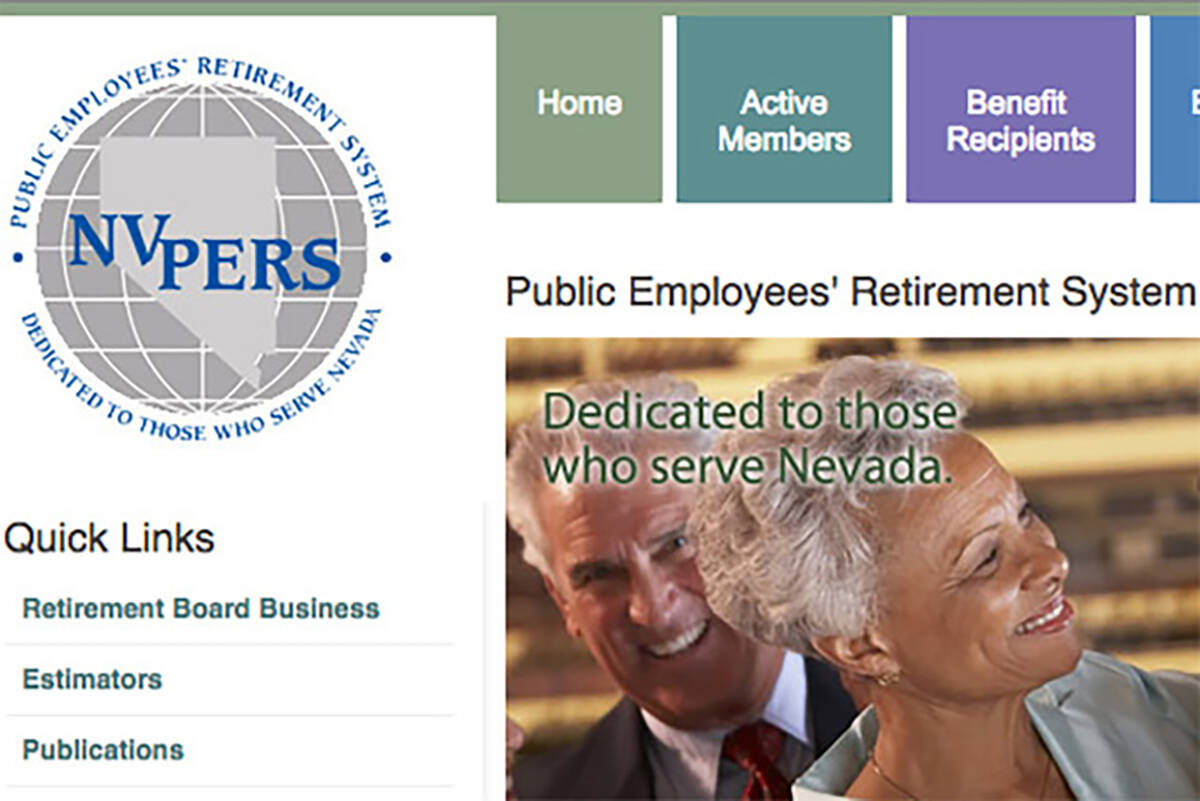EDITORIAL: Another reason that PERS needs an overhaul
Some Nevada public employees have been highly creative in creating new ways to double-dip.
The Review-Journal’s Katelyn Newberg recently exposed a scheme that’s costing taxpayers millions. Retired government workers receive monthly payouts from the Public Employees’ Retirement System of Nevada. For long-term employees, that system can be lucrative. More than 5,000 retirees received $100,000 or more last year, according to Controller Andy Matthews’ Nevada Open Finance Portal.
One of the conditions for that largess is that retirees can’t be hired back by the government, although there are a few exceptions. The prohibition exists so that taxpayers aren’t forced to pay the same person twice.
But some PERS recipients have figured out a loophole. They create a company, such as a limited liability corporation. The government then hires the company to gain access to the owner’s services.
The Review-Journal’s investigation uncovered at least 15 examples of this. Over the past five years, those companies received contracts worth more than $3.3 million while the retirees who own those businesses collected around $5 million from PERS. It’s likely happening on a wider scale, but in 2019, the Legislature limited the information PERS is required to release about retirees. That was a regrettable decision and an affront to transparency and accountability.
It’s easy to be outraged over the subterfuge. But the problems run deeper.. This double-dipping highlights a more fundamental issue with PERS. The point of a defined-benefit retirement system is to help people retire — that is, to stop working. The prevalence of double-dipping suggests that many government worker retirees have plenty of good years left.
The problem is the generous retirement eligibility rules for those in PERS. Employees enrolled before 2010 with 30 years of service can retire at any age. Police and fire employees with 25 years of service credit can retire at any age. Changes in 2015 modestly tightened eligibility. It now takes 33⅓ years of service to retire. The police and fire members can retire at age 50.
It’s little wonder that so many employees seek to double-dip. Many are in their prime working years.
These early retirements cost taxpayers tremendously. PERS is less than 80 percent funded. To pay down this unfunded liability, system officials keep raising contribution rates. This summer, they will increase to 36.75 percent for regular employees and 58.75 percent for police and fire employees. Before school districts and cities seek higher taxes, they should level with the public about the problems with the state retirement system.
Double-dipping is a scandal that exposes a much bigger problem with the system’s benevolent guidelines. Nevada needs to move new government employees to a hybrid system with defined contribution individual retirement accounts.

















